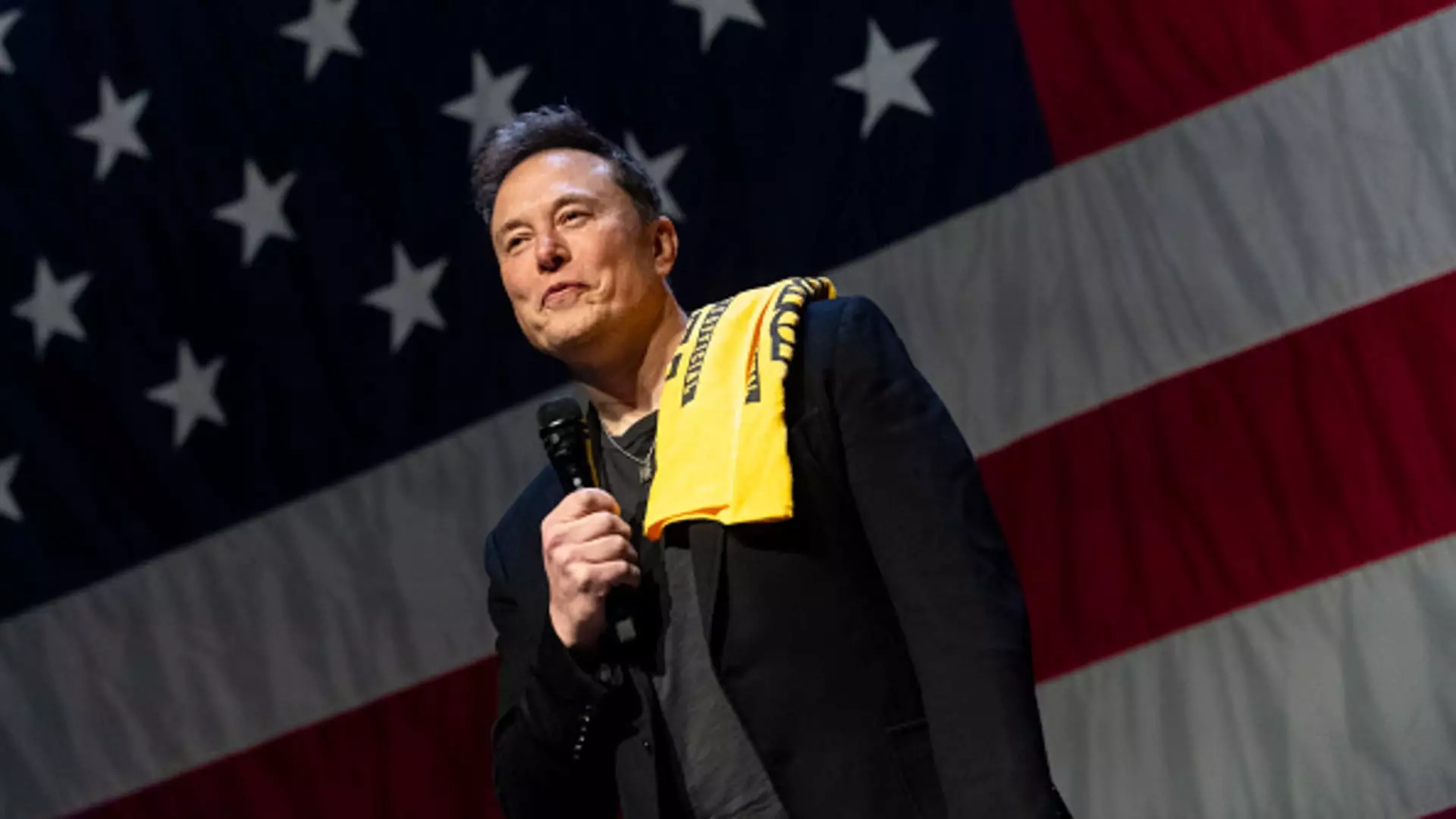In a contentious legal clash that highlights the intersection between politics and law, the Philadelphia District Attorney’s office has initiated a lawsuit aimed at halting Elon Musk and his political action committee (PAC), America PAC, from distributing $1 million prizes to voters in swing states. This legal drama unfolded in a federal court in Pennsylvania, where the DA’s office is trying to assert jurisdiction over what they characterize as an illegal and potentially manipulative electioneering tactic.
The lawsuit’s basis takes root in the claims that Musk’s giveaway operates as an unregulated lottery. According to John Summers, a lawyer representing DA Larry Krasner, the legal strategy involves initially proceeding in federal court with plans to transfer the case back to the state court. This maneuver reflects a common legal practice when parties seek to change the jurisdiction based on the governing laws and regulations applicable to the case at hand. It signifies the complexity and significance of jurisdictional matters, particularly when high-profile entities like Musk and his PAC are involved.
The procedural aspect gained traction following a failed emergency hearing that prompted legal representatives of Musk to file a notice of removal to federal court. They argued that America PAC, being federally registered, is beyond the reach of state law. This line of reasoning poses interesting questions about the regulatory framework governing political actions and the extent to which state laws can grapple with federal entities. The fundamental question remains: Can the state exert local authority over a federal political action committee?
The allegations brought forth in Krasner’s lawsuit paint a picture of a politically motivated initiative by Musk, who has publicly endorsed Donald Trump in the upcoming presidential election against Kamala Harris. The lawsuit claims that the $1 million prizes create a coercive environment, whereby potential voters may be persuaded to surrender their personal information and sign a politically charged petition. This concern underscores the delicate balance between political fundraising and ethical practices in electoral campaigns.
Krasner argues that such practices are clearly designed to influence electoral outcomes, thereby infringing upon the sanctity of the electoral process. This raises critical questions about not only the legality of such initiatives but also their ethical standing. Musk’s actions could be interpreted as a form of election interference, intentionally or not. The lawsuit also references security concerns, such as alleged antisemitic attacks directed at Krasner from Musk’s social media followers, adding a layer of personal stakes to the legal proceedings.
Despite the ongoing legal contest, America PAC has already given away $12 million through its lottery scheme, with Pennsylvania receiving a significant share of the spoils. The U.S. Department of Justice has also cautioned America PAC regarding potential violations of federal election law, yet no formal action has been taken against the PAC as of this moment. This inaction from a federal perspective raises other perplexing questions about regulatory effectiveness and the enforcement of electoral laws, especially when powerful figures like Musk are involved.
The upcoming federal court hearings will determine whether the lawsuit will remain in federal court and if the DA will succeed in transferring it back to state court, as well as ruling on the request for an emergency injunction. Given the rapid developments in this case, it is evident that the legal battles emerging from this situation reflect larger narratives about influence, capitalism in politics, and the regulatory landscape that governs electioneering practices.
As this legal saga continues to unfold, observers must consider its broader implications for future political campaigns and the role that money plays in shaping electoral outcomes. The intersection of law, politics, and ethical considerations offers a fertile ground for debate, signaling that the stakes are immensely high as the 2024 election approaches. The outcome of Krasner’s lawsuit against Musk and America PAC may very well set precedents that ripple through future electoral processes and define the contours of lawful political behavior in the United States. With hearings scheduled and legal strategies evolving, this case is undoubtedly one to watch as it navigates the intricate web of American politics and law.


Leave a Reply